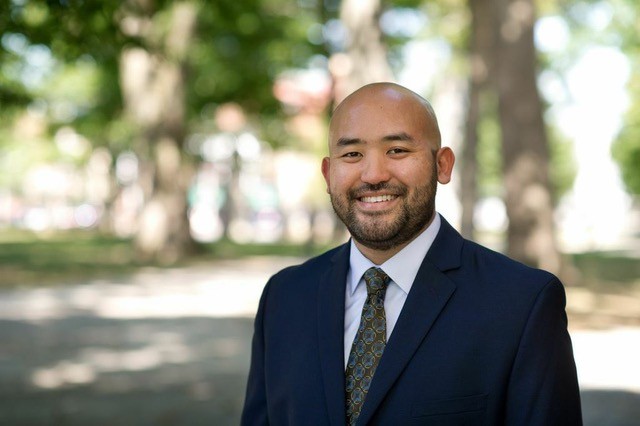Keynotes
Thursday, June 12, 2025:
P. Gabrielle Foreman (Pennsylvania State University)

“Why Didn’t We Know?!: The Forgotten History of the Colored Conventions and 19th-Century Black Political Organizing"
How is it possible for history to have sidelined seven full decades of early African American organizing? In this talk, attendees will learn about an ongoing campaign for Black rights which served as the prequel to the NAACP, Civil Rights, and Black Lives Matter movements. From 1830 through the beginning of the new century, free, fugitive, and freed Black Americans held multi-day “Colored Conventions” all across North America. African American leaders not only came together to demand Black freedom, but to advocate for all it entails then as now: educational equity, labor justice, voting, jury, and political rights, as well as freedom from state-sanctioned violence. Why didn’t we know?
Friday, June 13, 2025:
Katrin Horn (University of Greifswald)
-7-1.jpg)
© Wally Pruss
“Eavesdropping on the (Queer) Past: On Epistolary Intimacy and Connectivity”
Letters occupy a privileged place in writing about archives due to their singularity and ephemerality. Historian Rebecca Earle, for example, describes reading the private letters collected in archives without the intent of the original author as “a form of eavesdropping” because of the supposedly illicit and intimate insights they allow. Maryanne Dever in turn warns against mistaking the intimate for the confessional, and instead refers to the “fissured archive” of letter collections because of their missing links and lost references. Disentangling the letter from individualism and interiority, Mary Hewitt rather stresses their adherence to generic conventions and their function as “a speculative map for … social attachments.” Most agree about their central role in writing the history of women and minorities, for whose “archive stories” few official records might exist.
This talk will contribute to this debate by examining the letters exchanged transnationally among a group of (mostly unmarried) US American women in the second half of the nineteenth century with the two-fold aim of highlighting the practical concerns of working with manuscript correspondence (including their transcription and “representation”) and situating that work within the “archival turn” of cultural and queer studies. It will highlight the letters’ multiply contradictory status as source and object of study, as outward-bound and inward-facing, as singular and embedded in hundreds of connected records, and address the role of letters in the actual and metaphorical archives of American Studies. Epistolary exchange, it will argue, emerge as the central material of queer attachments across long distances – geographically for the correspondents, temporally for the contemporary scholars who eavesdrop on their intimate connections.
Saturday, June 14, 2025:
Kinohi Nishikawa (Princeton University)

“The Making and Remaking of Beloved”
Few other works of modern American literature have been canonized so quickly, and so thoroughly, as Toni Morrison’s Beloved (1987). The novel’s laudatory critical reception—it won the Pulitzer Prize for Fiction and is credited for earning Morrison the 1993 Nobel Prize in Literature—has been matched by its uptake as essential reading for students not just in America but around the world. Yet as much as the novel stands as a touchstone of culture, Beloved was, for Morrison, always a work in progress—a long-term, deep-seated reckoning with an enslaved woman’s story that seemed to resist the sympathy its context called for.
This lecture deconstructs the canonicity of Beloved by inquiring into its source material, its process of composition, and its multiple reimaginings through subsequent editions of the novel as well as a feature-length film and an opera. In so doing, the lecture demonstrates how Morrison resisted adapting Margaret Garner’s story into fiction and instead made it a constant companion to her art and creative practice.

